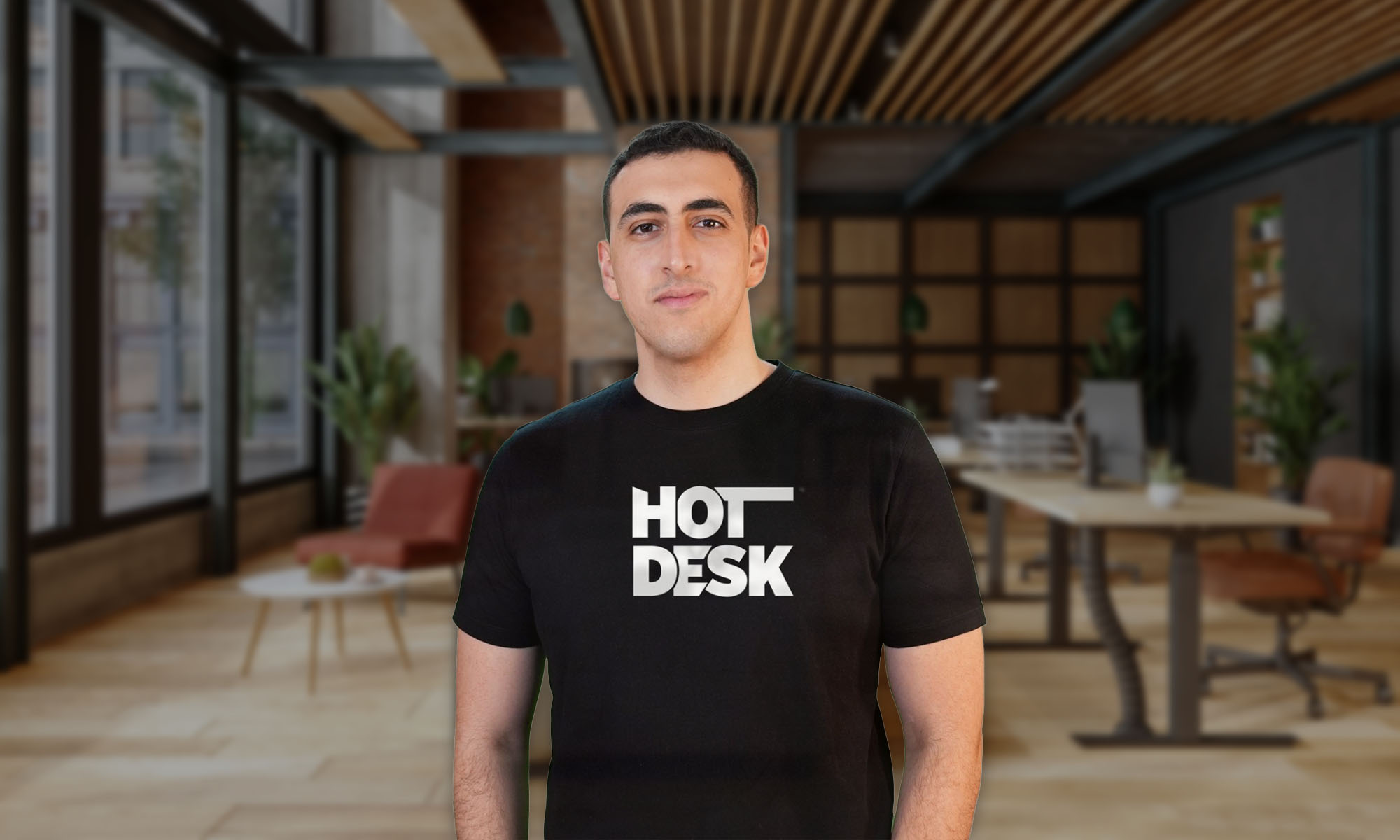News
Meet Hotdesk: A Homegrown UAE Remote Workspace Platform
Co-founded by Mohamed Khaled, Hotdesk has already disrupted the tech industry, and is helping to support flexible and remote co-working worldwide.

Although the UAE has become a favored location for tech startups in recent years, Hotdesk, founded by Mohamed Khaled, stands out as one of the most compelling success stories. Despite maintaining a technical and operational base in Egypt, Hotdesk has been headquartered in the UAE since its inception in 2020, making it a genuine homegrown platform.
Hotdesk has a simple USP: The app provides instant access to remote workspaces, opening the doors to over 148+ establishments in over 800 cities worldwide. In the same way Airbnb disrupted the hospitality industry, Hotdesk makes it simple to book a desk, meeting room, or whole office within seconds.
Cofounder and CEO Mohamed Khaled has over seven years of experience working in the UAE and beyond. In addition to having ambitious expansion plans, he has already assembled a team of 50 top-flight professionals with resumes featuring the likes of Google, Swvl, and WeWork.

“Prior to entering the startup world, I spent more than six years as a Senior Associate working for one of the Big Four [including] PwC, Deloitte, EY, and KPMG, accounting for nearly 40% of the industry’s $150 (Dh550.89) billion global market. I spent most of my time traveling and working from various locations across the region, often in silos; as a result, I was limited to the options of where to work from when it wasn’t at a client’s office. Towards the end of my time at the company, I began to rethink the ways of co-working, realizing that more flexible working options were needed for workforces of the future to adapt and thrive, and that was the germinal idea behind Hotdesk,” says Mohamed Khaled, co-founder and CEO of Hotdesk.
Also Read: Advanced Tech Adoption & Innovation Are UAE’s Top Priority
According to Khaled, Hotdesk is focused on supporting a hybrid work model known as “work 3.0”. Since COVID-19, many consultants, freelancers, and creatives now operate from a blend of different spaces, which means that traditional co-working venues, with their high fees and long contracts, aren’t always a good fit. Hotdesk overcomes this issue by allowing users to search for and book spaces at hourly, daily, monthly, or yearly terms without long contracts or tricky terms and conditions.
So how does Hotdesk benefit from offering this service to its users?
“Hotdesk matches supply and demand in the market, and the end-user always gets the best prices from the co-working hosts, enjoying us as a free service. We charge a market-based fee that varies slightly from market to market, and that fee is then collected from the co-working hosts’ revenue. Some might compare the model with Uber, Careem, or Airbnb, although we charge a lower fee and help our hosts sell workspaces, which otherwise would be vacant,” says Mohamed Khaled.
After a year of explosive growth, which saw Hotdesk grow from 15 bookings in its first month to over 10,000+ per month today, the company will next focus on expanding into the Kingdom of Saudi Arabia, before setting its sights on the lucrative European market.
News
Rabbit Expands Hyperlocal Delivery Service In Saudi Arabia
The e-commerce startup is aiming to tap into the Kingdom’s underdeveloped e-grocery sector with a tech-first, locally rooted strategy.

Rabbit, an Egyptian-born hyperlocal e-commerce startup, is expanding into the Saudi Arabian market, setting its sights on delivering 20 million items across major cities by 2026.
The company, founded in 2021, is already operational in the Kingdom, with its regional headquarters now open in Riyadh and an established network of strategically located fulfillment centers — commonly known as “dark stores” — across the capital.
The timing is strategic: Saudi Arabia’s online grocery transactions currently sit at 1.3%, notably behind the UAE (5.3%) and the United States (4.8%). With the Kingdom’s food and grocery market estimated at $60 billion, even a modest increase in online adoption could create a multi-billion-dollar opportunity.
Rabbit also sees a clear alignment between its business goals and Saudi Arabia’s Vision 2030, which aims to boost retail sector innovation, support small and medium-sized enterprises, attract foreign investment, and develop a robust digital economy.
The company’s e-commerce model is based on speed and efficiency. Delivery of anything from groceries and snacks to cosmetics and household staples is promised in 20 minutes or less, facilitated by a tightly optimized logistics system — a crucial component in a sector where profit margins and delivery expectations are razor-thin.
Despite the challenges, Rabbit has already found its stride in Egypt. In just over three years, the app has been used by 1.4 million customers to deliver more than 40 million items. Revenue has surged, growing more than eightfold in the past two years alone.
Also Read: Top E-Commerce Websites In The Middle East In 2025
CEO and Co-Founder Ahmad Yousry commented: “We are delighted to announce Rabbit’s expansion into the Kingdom. We pride ourselves on being a hyperlocal company, bringing our bleeding-edge tech and experience to transform the grocery shopping experience for Saudi households, and delivering the best products – especially local favorites, in just 20 minutes”.
The company’s growth strategy avoids the pitfalls of over-reliance on aggressive discounting. Instead, Rabbit leans on operational efficiency, customer retention, and smart scaling. The approach is paying off, having already attracted major investment from the likes of Lorax Capital Partners, Global Ventures, Raed Ventures, and Beltone Venture Capital, alongside earlier investors such as Global Founders Capital, Goodwater Capital, and Hub71.
























